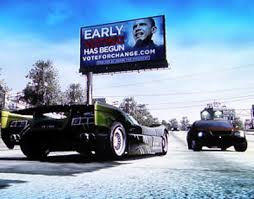Gamers as Community
A Community of Gamers
The definition of “community,” of course, can be difficult to pin down. As Thomas Deans (2003) noted, “Community is both an abstract concept and a lived enterprise” (p. 94). We place ourselves into communities, and communities sometimes form around us. We can actively pursue a specific kind of community for a variety of reasons, but it would be difficult to make a comprehensive list of all the communities to which we belong. Linda Flower (2008) more systematically defined communities as “political units and rhetorical forums” (p. 70), and Jeffrey T. Grabill (2007) elaborated that a “community…is a collection of organizations, institutions, and individuals” (p. 52). The presence or mere concept of a community can define and persuade groups of individuals to think and act a certain way. Moreover, most communities, even the gaming community, have systematic hierarchies that dictate how members should behave and what kinds of etiquette should be observed.
Gamers not only regulate their behaviors based on gaming etiquette (i.e., it’s wrong to cheat, ninja loot, [1] kill a player who is AFK, [2] etc.), but they also take active stances in political arenas, highlighting Flower’s concept of communities as “political units.” The Video Game Voters Network (2014), for instance, offers a site for gamers to actively defend the video games that stand at the apex of their community:
The Video Game Voters Network is a place for American gamers to organize and defend against threats to video games by registering to vote and letting Congress know how important this issue is to the community. Without a critical mass of adult video game players who are registered to vote and willing to stand firmly behind their games, politicians will continue to fire criticism at games and game players in order to score easy points for their political campaigns.
 Political censorship is certainly a concern for many gamers, and it stands as an issue of hot debate in the US. But the politics of the gaming community don’t stop there, starting in 2008 and returning in 2012, presidential candidates have begun using videogame advertising to help campaign for office (NPR). Seen as a political demographic in the US federal government, gamers have come a long way from those quiet hours spent in isolation in front of a television or computer. They are now a targeted political platform that can unite under a common agenda.
Political censorship is certainly a concern for many gamers, and it stands as an issue of hot debate in the US. But the politics of the gaming community don’t stop there, starting in 2008 and returning in 2012, presidential candidates have begun using videogame advertising to help campaign for office (NPR). Seen as a political demographic in the US federal government, gamers have come a long way from those quiet hours spent in isolation in front of a television or computer. They are now a targeted political platform that can unite under a common agenda.
Now that modern gaming allows users to go online, gamers have even been granted the opportunity to seek each other and define what it means to be a “gamer.” This means that players can now develop specified groups who share a language and a passion for video games. From guilds, to clans, to parties—gamers have been able to organize themselves into self-contained communities, where they share information and partake in conversation. These communities are sometimes formed amongst friends who know each other outside of the game, but groups are also forged within the games themselves as players “look for group” (LFG) and build parties based on the capability of their character classes. There are even webseries and comics [3] dedicated to the process wherein a gamer goes online and finds a group of like-minded people to share in his or her gaming experience.
Notes
- Loot an advanced item from a group kill and then log off before democratically determining who gets it.
- “away from keyboard”
- See the webseries The Guild or the webcomic Looking for Group.
